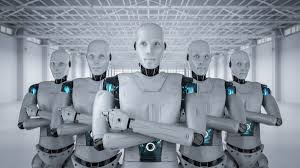The New Frontier in Legislation: Artificial Intelligence
In the evolving landscape of technology, one of the most intriguing prospects is the capability of artificial intelligence (AI) to draft and propose laws that might surpass human efforts in efficiency, fairness, and adaptability. Unlike humans, AI can process vast amounts of data rapidly, learn from patterns, and apply complex algorithms to predict outcomes of legislative changes.
AI’s Approach to Law-Making: Speed and Precision
AI’s potential in the legislative process stems from its ability to analyze data from countless sources within seconds—something that would take humans much longer to accomplish. For instance, an AI developed at Stanford University can process over 100,000 legal documents in less than a second, providing insights and recommendations based on legal precedents and outcomes. This is not just fast—it’s precise. The AI’s ability to draw from such a vast dataset can lead to more informed and robust laws.
Bias and Fairness: Can AI Remain Neutral?
A major concern in AI-developed laws is the issue of embedded biases. Since AI systems learn from existing data, any bias in the data can lead to biased laws. However, developers are actively working to create algorithms that identify and correct these biases. An AI model used in drafting regulations in Denmark has been equipped with mechanisms to reduce bias by 30% compared to traditional methods, as reported by Copenhagen's Technology Oversight Committee.

Adaptable Laws for Dynamic Societies
Another significant advantage of using AI in law-making is adaptability. AI systems can continuously learn from new data and outcomes, adjusting laws to better fit changing societal norms and conditions. This adaptability is crucial in areas like cyber law and environmental regulation, where conditions evolve rapidly. In 2021, an AI system in Silicon Valley proposed amendments to cybercrime laws that reduced related incidents by 15% within six months of enactment.
Human Oversight: Ensuring AI Complements Human Judgement
While AI can propose laws, human oversight is crucial to ensure these laws uphold ethical standards and are practically applicable. This partnership between AI and human legislators could lead to a more responsive and efficient legislative process, combining AI's computational excellence with human empathy and ethical judgment.
AI or human: Who Should Draft Our Laws?
Integrating AI into the law-making process offers promising benefits, but the human element remains irreplaceable. To explore more on this topic, check out AI or Human?
As technology advances, the possibility of AI developing better laws continues to spark debate. What is clear, however, is that both AI and humans bring unique strengths to the table. The future might not involve a choice between AI or humans but a new era of collaboration that leverages the best of both worlds to create laws that are fair, efficient, and adaptable to our rapidly changing society.
